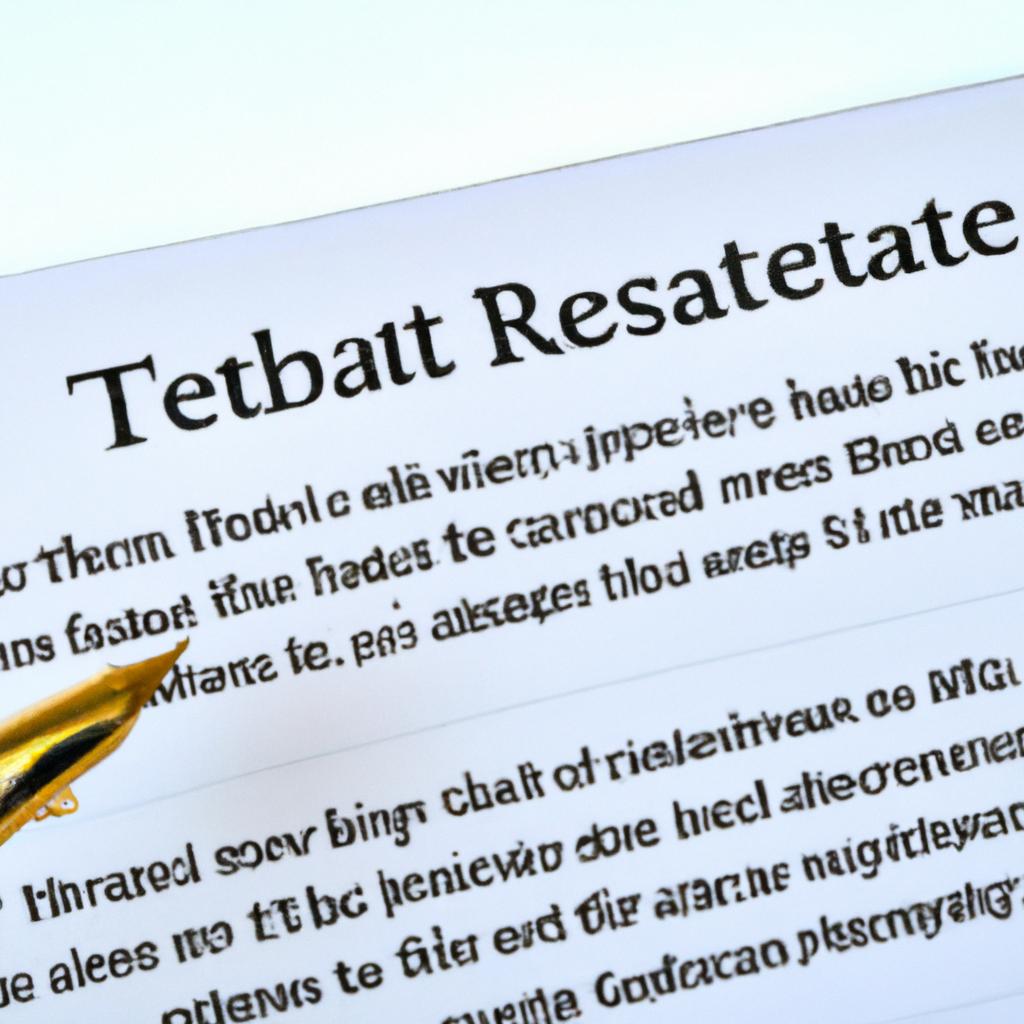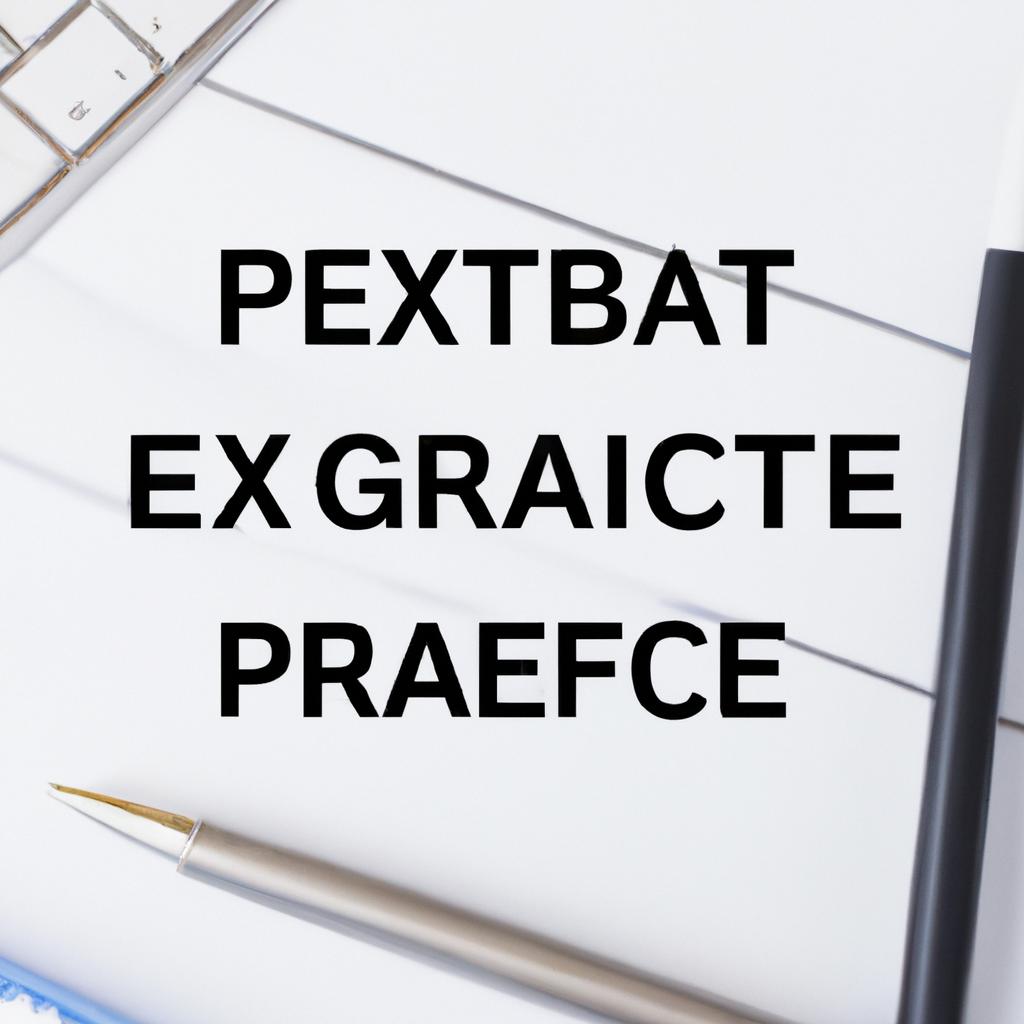Welcome to Probate 101, a comprehensive guide to navigating the often intricate and convoluted world of probate proceedings. As experienced legal professionals at Morgan Legal Group, based in the heart of New York City, we understand the importance of thorough estate planning and effective trust administration. In this article, we will delve into the fundamentals of probate, shedding light on the key processes, terms, and considerations that are vital for anyone involved in the oftentimes daunting probate process. So sit back, relax, and allow us to be your trusted guide through the intricate labyrinth of probate law. Let’s get started.
Understanding the Probate Process in New York State
When a loved one passes away in New York State, their assets and possessions may need to go through the probate process before being distributed to heirs and beneficiaries. Probate is the legal process of administering the estate of a deceased person, resolving any claims against the estate, and distributing the deceased’s assets according to their Will or the laws of intestacy if there is no Will.
is essential for anyone involved in the administration of an estate. Here are some key points to keep in mind:
- Probate Court: The Surrogate’s Court in the county where the deceased resided at the time of their death is responsible for overseeing the probate process.
- Executor: The person named in the Will to carry out the wishes of the deceased is known as the executor. If there is no Will, the court will appoint an administrator to perform the same duties.
- Asset Inventory: An inventory of the deceased’s assets must be compiled and submitted to the court for approval before distribution can begin.

Key Steps to Take When Administering an Estate through Probate
When navigating the complex process of probate, it is crucial to follow key steps to ensure a smooth administration of the estate. Here are some important actions to take:
- Locate and secure all assets: The first step is to gather all assets belonging to the deceased, including bank accounts, real estate, investments, and personal belongings.
- File the will with the probate court: The next step is to file the will with the probate court in the county where the deceased resided. This will officially kick off the probate process and allow for the appointment of an executor.
| Asset | Location | Status |
|---|---|---|
| Bank Account | Chase Bank | Secure |
| Real Estate | Manhattan | Located |
| Investments | Stock Market | Pending |

Common Challenges Faced During the Probate Process
During the probate process, there are several common challenges that individuals may face. These challenges can often complicate the process and lead to delays in distributing assets to beneficiaries. Some of the most common challenges during the probate process include:
- Disputes among beneficiaries: One of the most common challenges during probate is when beneficiaries disagree on how assets should be distributed. This can lead to lengthy legal battles and delays in the probate process.
- Creditor claims: Another challenge that individuals may face during probate is dealing with creditor claims. Creditors may come forward seeking repayment of debts owed by the deceased, which can reduce the amount of assets available for distribution to beneficiaries.

Expert Tips for Streamlining the Probate Process
When it comes to streamlining the probate process, there are several expert tips that can help make the administration of an estate more efficient and less time-consuming. By following these strategies, you can navigate the complexities of probate with ease and ensure that the wishes of the deceased are carried out smoothly.
One key tip for streamlining the probate process is to gather all necessary documents and information upfront. This includes the deceased’s Will, financial statements, property deeds, and other relevant paperwork. By having these documents organized and readily accessible, you can avoid delays and complications during the probate proceedings. Additionally, working with an experienced probate attorney can help guide you through the process and provide valuable expertise to ensure everything is handled correctly.
Q&A
Q: What is probate?
A: Probate is the legal process of distributing a deceased person’s assets and settling their debts.
Q: When does probate occur?
A: Probate occurs after someone passes away, and their assets need to be legally transferred to their heirs or beneficiaries.
Q: Who oversees probate?
A: Probate is overseen by a court to ensure that the deceased person’s wishes are carried out and debts are settled appropriately.
Q: What assets go through probate?
A: Assets that are solely owned by the deceased typically go through probate, such as real estate, bank accounts, and personal belongings.
Q: How long does probate take?
A: The length of probate can vary depending on the complexity of the estate and any potential disputes among beneficiaries, but it typically takes several months to a year to complete.
Q: Do all estates have to go through probate?
A: Not all estates have to go through probate. In some cases, assets may pass directly to beneficiaries through joint ownership or beneficiary designations, avoiding the probate process.
Q: Can probate be avoided?
A: There are ways to avoid probate, such as creating a trust or setting up joint ownership of assets, but it is important to consult with a legal professional to determine the best approach for your situation.
Q: What happens if someone contests a will during probate?
A: If someone contests a will during probate, the court will review the evidence and make a determination on the validity of the will. This can prolong the probate process and potentially lead to a legal battle.
Wrapping Up
In conclusion, navigating the probate process may seem daunting, but with the right knowledge and guidance, it can be a manageable and even enlightening experience. Understanding the basics of probate, from the role of the executor to the distribution of assets, is key to ensuring a smooth and efficient settlement of the estate. By staying organized, seeking professional advice when needed, and maintaining open communication with all parties involved, you can successfully navigate the probate process and honor your loved one’s final wishes. Remember, probate is not just a legal procedure—it’s a journey of closure and remembrance.
 Probate 101: Understanding the Basics and Benefits
Probate 101: Understanding the Basics and Benefits
Probate is a legal process that is often misunderstood and seen as a daunting and complex task. However, having a basic understanding of probate can be beneficial, whether one is planning for their own estate or handling the affairs of a deceased loved one. In this article, we will delve into the basics of probate, its process, and the benefits it offers.
Understanding Probate:
Probate is the court-supervised process of distributing a deceased person’s assets and properties to their beneficiaries or heirs. It is primarily used to settle any debts or claims against the estate and ensure that the remaining assets are distributed according to the decedent’s wishes or state laws. The process is governed by state laws and can differ depending on the jurisdiction.
The Probate Process:
The probate process typically begins when the executor or named personal representative of the deceased’s will files a petition with the court to open probate. If there is no will, the court will appoint an administrator to handle the estate. Once the court has validated the will’s authenticity or appointed an administrator, the first step is to itemize and appraise the decedent’s assets and properties.
If there are any outstanding debts, the executor or administrator is responsible for paying them off using the estate’s assets. This process also involves notifying creditors and publishing a notice in the local newspaper to give them a chance to make any claims against the estate. Once all debts are settled, the remaining assets can be distributed to the beneficiaries.
The Role of the Executor or Administrator:
The executor or administrator is responsible for carrying out various tasks during the probate process. Some of these tasks include notifying creditors and distributing assets to beneficiaries. They also have to provide a detailed account of the estate’s finances and report to the court regularly. They may also have to handle any disputes among beneficiaries or creditors.
Probate Fees and Taxes:
The probate process involves several fees, such as court fees, appraiser fees, and attorney fees. These fees can add up and reduce the overall value of the estate. Additionally, some states also impose an estate or inheritance tax, which is calculated based on the estate’s value. It is essential to consult an estate planning attorney who can guide you through the probate process and help minimize these fees and taxes.
Benefits of Probate:
Contrary to popular belief, there are some benefits to the probate process. Firstly, it provides an organized and supervised manner of administering the estate and distributing assets. This ensures that all debts are paid, and the remaining assets are distributed fairly amongst beneficiaries. It also reduces the chances of fraud or disputes between heirs.
Secondly, probate can also protect against creditor claims, as it requires them to make claims within a specific timeframe. If they fail to do so, their claims may be barred. Additionally, if the estate is insolvent, the executor or administrator can reject any creditor claims and pay them according to the state’s priority laws.
Tips to Avoid Probate:
Despite its benefits, many prefer to avoid the probate process altogether. This is because it can be time-consuming, expensive, and can put the estate’s assets in public record. Here are some tips to avoid probate:
1. Establish a Revocable Living Trust: Placing assets in a revocable living trust allows them to be transferred to beneficiaries without going through probate.
2. Utilize Payable-on-Death Designations: Certain assets like bank accounts, retirement accounts, and life insurance policies allow you to designate beneficiaries and avoid probate.
3. Joint Ownership: Holding assets jointly with rights of survivorship allows the asset to pass directly to the remaining owner without going through probate.
4. Gifts: One can also use gifting strategies to transfer assets while they are still alive, reducing the value of the estate and therefore minimizing probate fees.
Real-Life Example:
To understand probate better, let’s look at a real-life example. John, a divorced father of two, passes away without a will, and his estate is valued at $500,000. His two children are the beneficiaries of his estate. Without a will, the court appoints an administrator, who has to pay off John’s $100,000 mortgage, $20,000 in credit card debt, and $10,000 in funeral expenses from the estate’s assets. The remaining $370,000 will be split equally between his two children.
In this example, we can see that the probate process can have significant financial implications and may not distribute the estate according to the decedent’s wishes. It is crucial to plan for the possibility of death and take the necessary steps to avoid probate.
In conclusion, probate is a complex and often unavoidable process. However, understanding the basics and seeking guidance from an experienced estate planning attorney can make the process smoother and minimize its negative effects. Proper estate planning can also help avoid probate altogether, providing peace of mind and ensuring that your assets are distributed according to your wishes.







